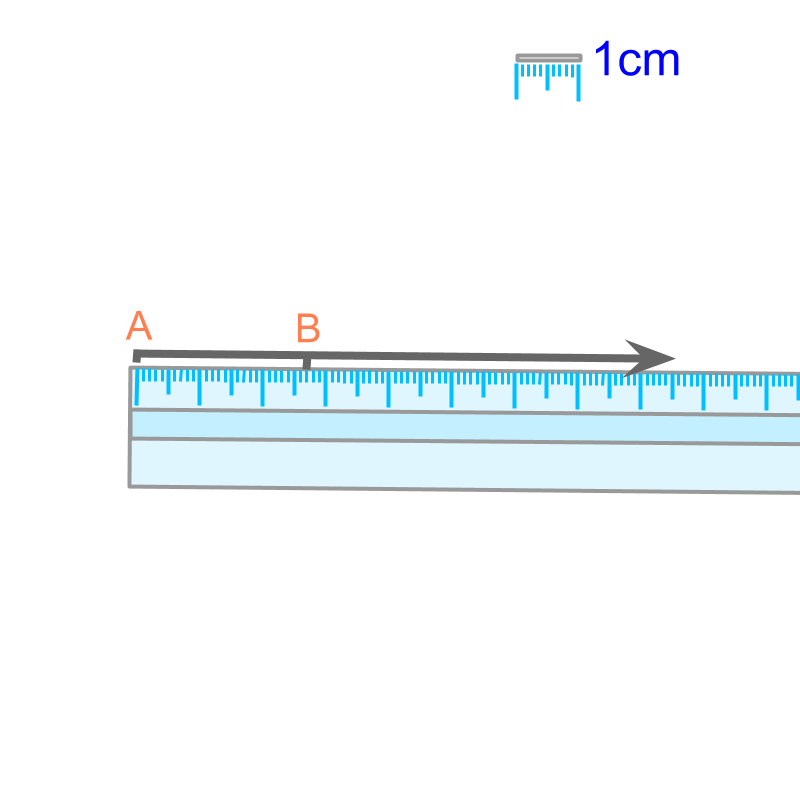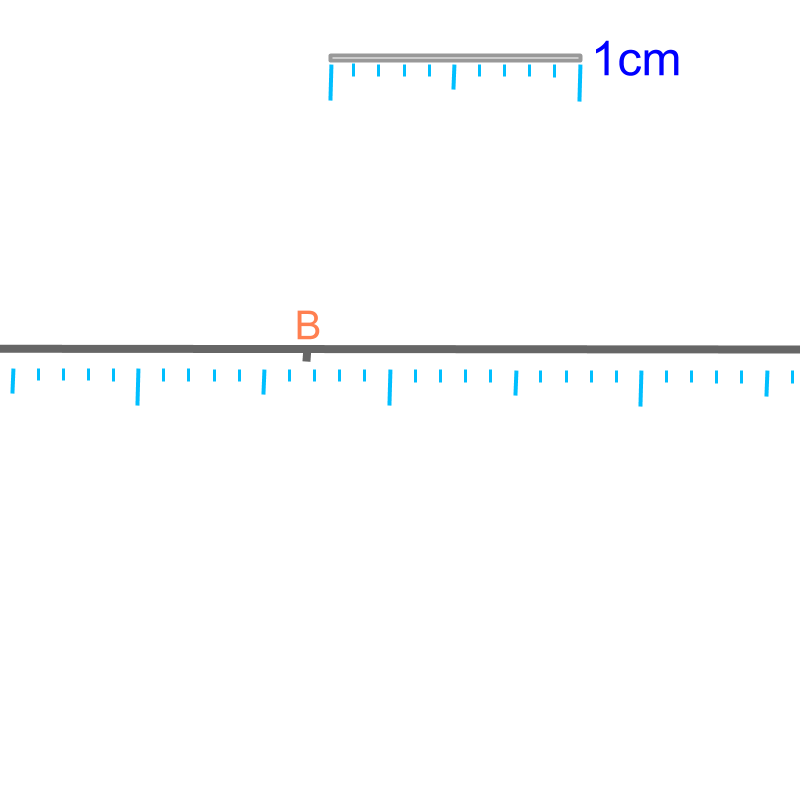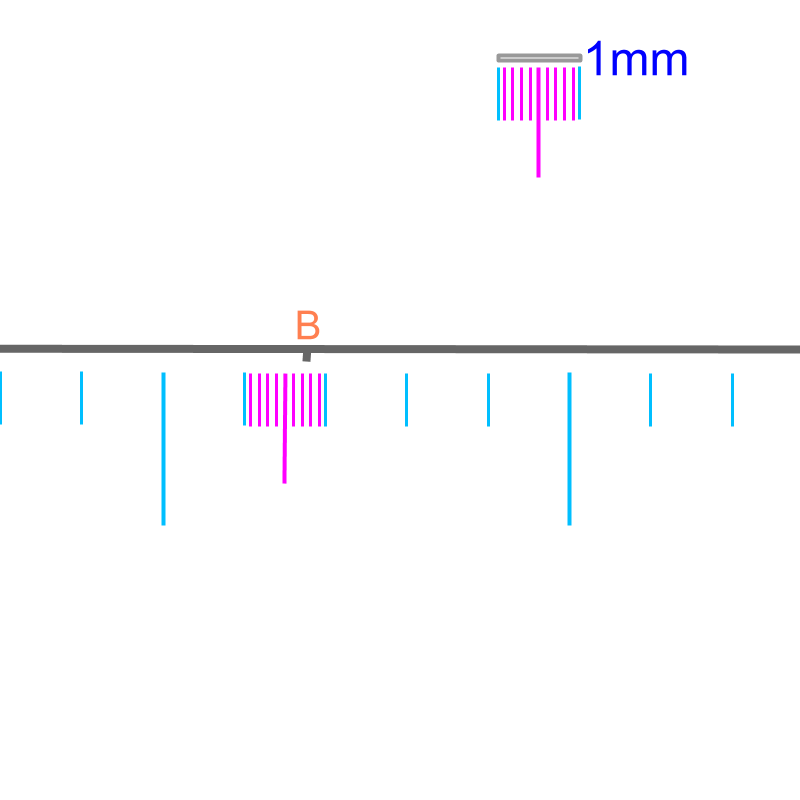
what you'll learn...
Overview
Accuracy of Measurements : Measurement can be performed to a desired accuracy level.
When the accuracy is specified to a lower level, the measurement is approximate measurement.
exact
Consider a pencil. How to measure the length of a pencil?
We can directly measure the distance-span between the two ends of the pencil. OR,
we can mark the ends of the pencil onto a line-segment and measure the length of the line-segment.

To measure the length of a pencil, an equivalent line segment is formed. The line segment and the graduated scale are shown in the figure. Note the legend on the right-top of the figure showing centimeter. The length of the line segment is " cm".

The figure is magnified. Note the legend showing the modified cm length. The point is not shown. It is noted that, the length of is approximately cm.

The figure is magnified even larger. Note the legend showing the modified length. As per the figure, the length of is better approximated to cm

The line-segment can be measured at different accuracies.
• The length is cm when measured with a graduated-scale.
• The length is cm when magnified and measured with a better instrument than a scale.
• The length is when measured at much higher accuracy.
For most practical applications, the length of cm is good enough.
Note 1: The line represents a real object. It can be a leaf, or a rod. The important point being, the measurements in real-life are approximated.
Note 2: The length of a real object can be exactly measured too. For example, a pencil of length exactly cm is possible. That object, when magnified and measured with high accuracy, will be of length cm only.
Note 3: The length of a real object can be a decimal number, that does not end or does not repeat. For example, a pencil is of length cm length. The decimals in the number does not end or repeat. It is an interesting observation, that will help to understand some concepts later.
The word "accuracy" means: state of being exactly correct.
summary
Accuracy of Measurements : Measurement can be performed to a desired accuracy level.
When the accuracy is specified to a lower level, the measurement is approximate measurement.
Outline
The outline of material to learn "Mensuration basics : Length, Area, & Volume" is as follows.
Note: click here for detailed outline of Mensuration (Basics).
• Measuring Basics
→ Introduction to Standards
→ Measuring Length
→ Accurate & Approximate Meaures
→ Measuring Area
→ Measuring Volume
→ Conversion between Units of Measure
• 2D shapes
→ Perimeter of Polygons
→ Area of Square & rectangle
→ Area of Triangle
→ Area of Polygons
→ Perimeter and area of a Circle
→ Perimeter & Area of Quadrilaterals
• 3D shapes
→ Surface Area of Cube, Cuboid, Cylinder
→ Volume of Cube, Cuboid, Cylinder